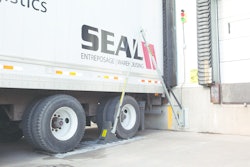
Melons and sprouts—need one say more to gain the immediate attention of a food company? The food industry is in the midst of a wave of foodborne illness claims, and this wave has not yet crested.
The Food Safety Modernization Act has granted the U.S. Food and Drug Administration substantial new powers to police and, for the first time, order the recall of a food. Public consciousness of the dangers of contaminated food has soared. While the plaintiffs’ bar has zeroed in on contaminated food as its next gold mine, the food industry can expect that liability arising out of contaminated food will continue to grow.
Every company has a general liability policy. This policy responds to claims of bodily injury, and is a first line of defense against foodborne illness claims. One big advantage of a general liability policy is that it provides that the insurer has an unlimited obligation to pay costs.
As to indemnity limits, companies may want to review to see if their policy limits are adequate in light of rising foodborne illness liability. Moreover, every company in the food supply chain faces liability. A recent complaint arising from a death caused by a contaminated melon sued the farm, the two middlemen, the supermarket, the food auditing company that the farm used, and the company that sold equipment to the farm.
Also, companies in the food chain are demanding that their suppliers name them as additional insureds on their policies. This means that policy limits that might appear adequate for the supplier may not be adequate when shared with other companies in the food supply chain.
Foodborne illness is the most tragic and visible result of contamination, but at least companies will have some available insurance coverage under general liability policies. However, actual or potential contamination can cause enormous economic losses to food companies compelled to recall their products. Such costs are largely not covered by traditional insurance policies. In response, the insurance industry has offered food recall insurance policies.
Food recall policies do not provide coverage for third-party claims for bodily injury or property damage. Such claims are covered by general liability policies. Food recall policies also do not apply to prophylactic recalls. They only apply to recalls necessary when the policyholder’s contaminated food has caused or, as one policy puts it, ‘is likely to cause,’ bodily injury or property damage.
In this regard, the name “food recall policy” is a misnomer. These policies do not respond to recalls, but to contamination that has caused or may cause illness. The FDA has the power to force companies to order recalls in the absence of direct contamination, and indeed most recalled products have not caused bodily injury. As a result, the difference between a “recall” policy and a “contamination” policy can be crucial.
A company can purchase either a first-party or third-party food recall policy, or both. First-party policies provide coverage for the insured’s own economic loss incurred as a result of a recall. Third-party coverage applies to economic loss incurred by customers.
The developing case law with respect to these policies demonstrates a broad gulf between the coverage that the policyholder may expect versus the coverage that the policy actually provides. These policies are not triggered by prophylactic recalls, but only by recalls that result from actual or “likely” bodily injury. Once triggered, though, these policies provide broad coverage.
Food recall policies are still in their infancy and are evolving rapidly. A food company must carefully survey the policies available in the marketplace to locate the one that best fits its needs, and must also understand the limitations on the policies’ scope.
In conclusion, any risk manager in the food industry must consider the utility of food recall policies as a risk management tool. The analysis will require the weighing of the cost of the policies versus the scope of coverage. Economic loss from a food recall is usually substantial. However, only a minority of food recalls are because of actual or “likely” bodily injury.
Food insurance policies are not standardized and are evolving. Moreover, a company may be able to customize these policies. Policyholders will need to watch to see if these policies only produce another round of coverage litigation or are an effective method of risk management.




















